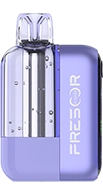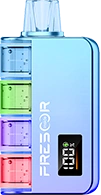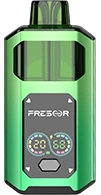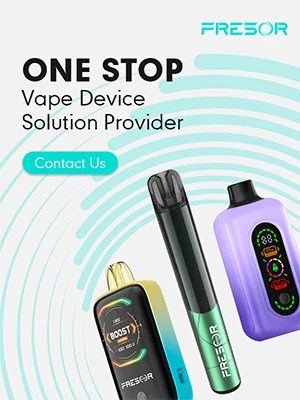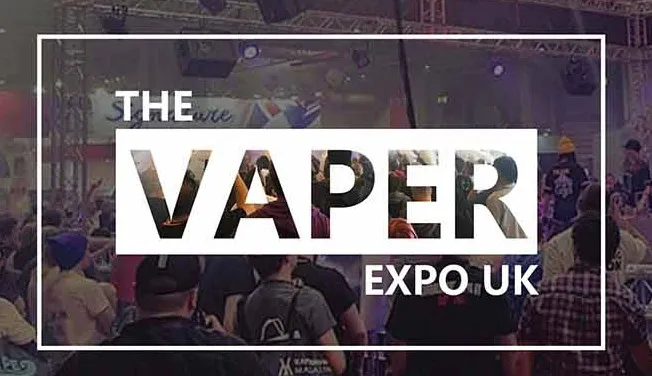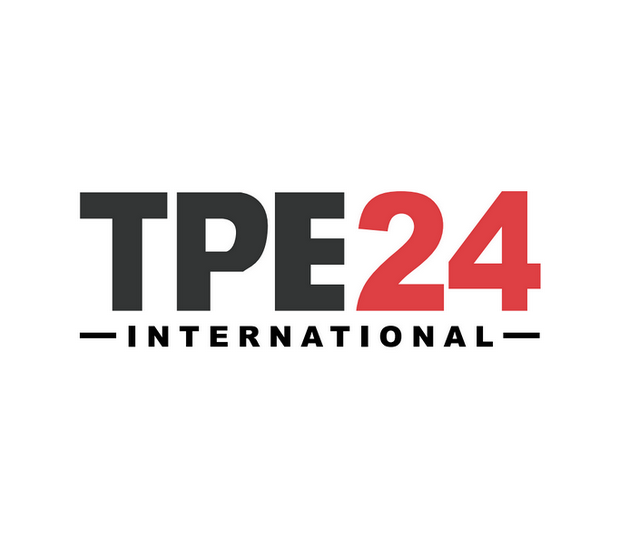Vape Restrictions in Sweden: A Complete Guide Every Vaper Must Read

11 September 2023
Vaping is legal in Sweden, but there are several vape restrictions in Sweden on where and how it can be used. Whether you're a resident or a traveler, our guide will provide valuable insights into the dos and don'ts of vaping in Sweden.
Understanding the regulations governing their favorite pastime is crucial for vapers in Sweden. This comprehensive guide delves into the intricate landscape of vape/e-cigarette restrictions in Sweden, offering vapers and enthusiasts a definitive resource to make informed decisions.
Understanding Vaping Culture in Sweden
Vaping is a relatively new phenomenon in Sweden but has quickly become popular. There are about 92,200 vapers in Sweden, giving an adult vaping prevalence of 1.1%. This is a relatively low number compared to other countries, such as the United States, where the adult vaping prevalence is 13.7%. While exploring vape/e-cigarette restrictions in Sweden, one must recognize the remarkable statistics that shed light on this phenomenon.
With a population known for its health-conscious choices, it's no surprise that vaping has gained traction as an alternative to traditional smoking. Sweden's approach to vape/e-cigarette restrictions emphasizes harm reduction and keeping these products out of the hands of minors.
Also, vaping products are prohibited for those under 18, aligning with the country's strict stance on youth access to tobacco and nicotine-related products. The regulations extend to advertising, packaging, and flavors, all aimed at curbing the allure of vaping among young individuals.
However, there are also some concerns about the health risks of vaping. In 2019, the Swedish Public Health Agency warned that vaping could harm young people, especially those who have never smoked cigarettes.
The Swedish government has responded to these concerns by imposing some restrictions on vaping. For example, vaping is now prohibited in all indoor public places, including restaurants, bars, and workplaces. Vaping is also prohibited in outdoor areas where children are present, such as playgrounds and sports fields.
There is still much we do not know about the long-term health effects of vaping. However, the Swedish government is cautiously regulating vaping and educating the public about the potential risks.
Existing Vape Restrictions in Sweden
The regulations surrounding vaping products in Sweden are stringent, aiming to balance harm reduction and responsible consumption. These regulations encompass various aspects, ensuring that both users and non-users are protected.
Here are the existing vape restrictions in Sweden, as well as some changes that have been made this year;
· Age Limits
Vape/e-cigarette restrictions in Sweden stipulate that individuals under 18 are prohibited from purchasing or using these products. This aligns with the broader effort to prevent youth access to nicotine-containing products, a key concern in public health circles.
· Product Quality Standards
Vape products in Sweden are subject to rigorous quality standards to maintain consumer safety. Therefore, all vape products sold in Sweden must meet certain quality standards. The Swedish Public Health Agency sets these standards. The standards cover the ingredients that can be used in e-liquids, the nicotine content of e-liquids, and the labeling of vape products.
Manufacturers must adhere to these standards to see to it tha ensure that the products are free from harmful substances and accurately labeled.
· Advertising Limitations
The advertising of vaping products is heavily restricted in Sweden. Advertisements cannot target minors, mislead consumers about product effects, or promote vaping as a glamorous lifestyle. These measures align with the country's commitment to minimizing the appeal of vaping among young individuals.
Changes in Vape Regulations This Year
This year has witnessed notable developments in vape/e-cigarette restrictions in Sweden, underscoring the country's commitment to staying current with emerging health concerns.
- Flavor Restrictions: In response to concerns about flavored vaping products appealing to young people, Sweden has introduced stricter regulations on flavors. These regulations aim to curb the allure of vaping among minors by limiting the availability of appealing flavors—a limit on the amount of nicotine that can be contained in e-liquids.
- Online Sales Restrictions: To enhance control over age verification and prevent sales to minors, online sales of vaping products have faced more stringent regulations. This move is a proactive step to ensure that age restrictions are effectively enforced in the digital realm.
- Public Usage Regulations: Further vape/e-cigarette restrictions in Sweden have been implemented to define where vaping is allowed. As of this year, there are designated areas where vaping is permitted, focusing on minimizing exposure to non-users and ensuring a respectful coexistence in public spaces.
- A requirement for vape retailers to obtain a license. This requirement ensures that vape products are sold safely and responsibly.
Vape or e-cigarette restrictions in Sweden are designed to protect public health, especially among the younger population. The country's willingness to adapt its regulations to emerging concerns underscores its commitment to responsible vaping practices.
Emerging Trends in Vape Regulation
As the vaping landscape continues to evolve, it's essential to anticipate future directions for vape/e-cigarette restrictions in Sweden. These trends reflect the nation's commitment to public health, its willingness to adapt to emerging challenges, and international vaping trends.
Here are some emerging trends in vape regulation in Sweden, as well as some potential future directions:
1. Public health
The overarching trend in vaping regulations revolves around prioritizing public health. Sweden, known for its comprehensive healthcare system, will likely intensify its efforts to protect citizens from the potential risks of vaping.
In 2019, the Swedish Public Health Agency warned that vaping could harm young people, especially those who have never smoked cigarettes. The government is likely to continue to regulate vaping in a way that protects public health.
2. Youth Vaping Prevention
Youth vaping remains a top concern. Vape/e-cigarette restrictions in Sweden will likely become even more stringent, focusing on eliminating youth access to vaping products. This might involve revisiting age verification protocols for online sales, bolstering enforcement at physical stores, and continually updating regulations to counteract emerging marketing tactics targeting minors.
3. International Vaping Trends
Vaping trends transcend national boundaries, necessitating international collaboration. Sweden's regulatory approach could align more closely with international standards and best practices to address cross-border challenges. This might involve sharing data on product safety, tracking emerging health issues, and collectively addressing the global vaping landscape.
Recently, many countries have imposed stricter regulations on vaping, such as banning flavored e-liquids and online sales. The Swedish government will likely monitor these international trends and adopt similar rules.
4. Innovations in Harm Reduction
While vaping is often considered a harm-reduction tool, there's room for innovation. Sweden might lead the way in promoting research on safer vaping technologies, encouraging the development of products that mitigate potential health risks.
5. Public Awareness Campaigns
To complement vape/e-cigarette restrictions, Sweden may intensify public awareness campaigns about the risks and benefits of vaping. Educating the population about the evolving landscape and potential health implications of vaping can empower individuals to make informed choices.
In light of these emerging trends, it's evident that vape/e-cigarette restrictions in Sweden will continue to evolve in response to changing health concerns, market dynamics, and international developments. By staying informed about these trends, citizens and enthusiasts can actively shape the vaping landscape and foster a culture of responsible and health-conscious vaping.
FAQs About Vape/e-cigarette Restrictions in Sweden
Is vaping legal in Sweden?
Yes, vaping is legal in Sweden. However, several restrictions exist on where and how it can be used.
What are the potential future directions for vape regulation in Sweden?
The Swedish government is likely to continue to regulate vaping in a way that protects public health. The government may also take further steps to reduce youth vaping, such as banning online sales of vape products and requiring vape products to be labeled with health warnings.
Are flavored vaping products allowed in Sweden?
Flavored vaping products have faced increased scrutiny due to concerns about their appeal to young people. While flavored options are available, there have been discussions about restricting certain flavors that may attract minors.
Can I vape in public places in Sweden?
Vape or e-cigarette restrictions in Sweden dictate where you can legally vape. Designated smoking areas are available in certain public spaces. However, it's important to respect non-users and adhere to regulations, as vaping is prohibited in enclosed public spaces and on public transportation.
How can you stay updated on changes in vape regulations in Sweden?
Staying informed about vape/e-cigarette restrictions in Sweden is essential. Regularly checking official government websites, public health resources, and reputable news sources will help you keep records of any new developments or regulation changes.
In a nutshell, remember that vape/e-cigarette restrictions in Sweden may evolve. To ensure compliance and responsible vaping, staying updated on the newest regulations and trends in the vaping landscape is essential.

